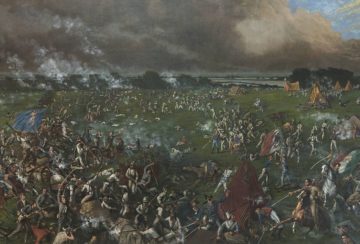 David Waldstreicher in Boston Review:
David Waldstreicher in Boston Review:
U.S. history is a strange, exceptional field of play where, to paraphrase Garrison Keillor’s famous sign-off from Lake Wobegon, all the revolutions are strong, all the revolutionaries are kind, and even the civil wars are above average.
In the orthodox telling, there was only one revolution that mattered, after all. The fact that American revolutionaries won their independence in part because the French intervened in their British civil war has often been narrated as at most a useful irony. Certainly Africans or Natives had nothing to do with it, except as desperate fighters for their own marginal purposes: defined out of the story partly because they lost but mostly because, well, they were defined out of the story. Yet the century-long debate between “Progressive” (read: radical) versus “Whig” (liberal and conservative) historians about whether ordinary white people benefitted or whether elites did has begun to seem almost beside the point: there was more at stake for others than republicanism or nationhood.
The certainty that “the people” and their liberties triumphed and set the stage for future progress doesn’t seem sufficient as history anymore. Casting the U.S. Civil War as a second good revolution—a resolution of unfinished business that finally ended slavery (how stubborn it proved!) and created a real nation-state—leaves many questions unanswered. If Revolutionary-era ideas and Civil War identities are so powerful and bend so decisively toward justice, why are the wrong ones winning? No wonder the settler revolutionaries of 1776 realized that the first priority was spin—or as Thomas Jefferson put it so delicately in the Declaration of Independence, “a decent respect for the opinions of mankind.”
More here.
